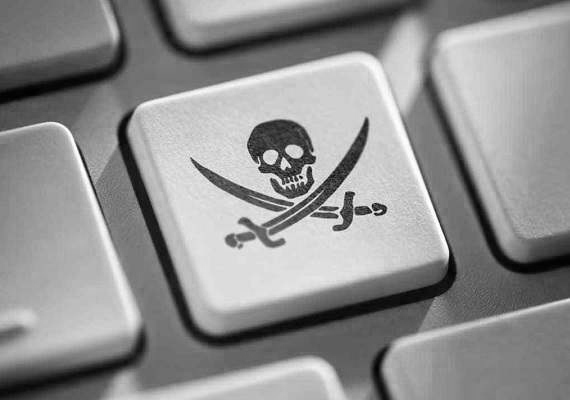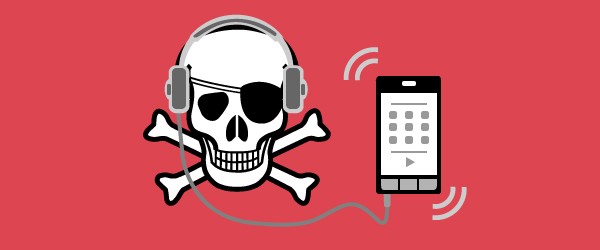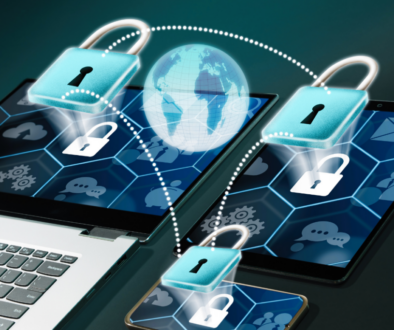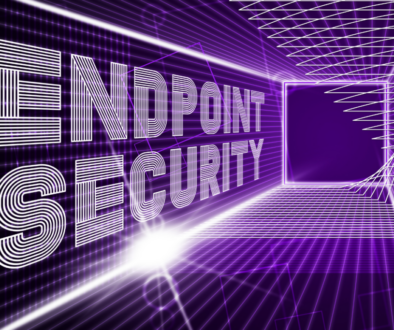What is Piracy ?

In old days Piracy meant the practice of attacking and robbing ships at sea. Piracy has changed very little over the years. Only the mode has changed. Instead of a boat, now users have a computer, instead of the high seas, users now have the Internet and instead of stealing gold; people now steal software, music, movies, books etc. In spring 2009 four Swedish internet pirates were being sentenced to pay more than three million dollars in fines and serve a year in the jail. Their crime was running the Pirate Bay portal. One of the web’s most visited file-sharing communities. The Pirate Bay is a part of the trend of peer-to-peer technologies used to illegally share music, videos and application. Public sites such as Pirate Bay, ISOhunt and Mininova indexed and track BitTorrent files which allow computers to connect and download content. People go to these sites to search for and grab illegal software, books, music and videos. However these web sites were not the first of their kind. In fact there’s been a long lineage of illegal file sharing websites. The first and most infamous was Napster. It was the first peer-to-peer (P2P) file-sharing network of its kind. In October of 2000 it had been reported that Napster had over 32 million users and it was estimated that there were about 800,000 people using it at any one time. At the same time site membership was also growing at a rate of 1 million users per week. In its initial years Napster was not illegal. This is mainly because the concept of Napster was so original and so new that laws had not yet been created to say that it was violating copyright laws. Consequently many people who would otherwise avoid illegal actions took part in Napster because it wasn’t yet illegal. This rather large group people got used to the idea of being able to download whatever entertainment they wanted to whenever they wanted to. Thus these people got a taste of what it felt like to get something for free. On December 8th 1999 the Recording Industry Association of America (RIAA) announced it was suing Napster for violating copyright rules. This was the first peer-to-peer (P2P) technology case. This case set the example for future cases. The RIAA could not accuse Napster of direct infringement of copyright laws. This was because the program did not actually make copies of the entertainment files. Instead Napster was charged with contributory and mediated copyright infringement. On other words Napster was making it possible for others to violate copyright laws. This case marked the beginning of the end for Napster. The judge ruled in favor of the RIAA and Napster was ordered to shut down. However the damage had already been done. With Napster being shut down people already had a thirst and a taste for obtaining free entertainment. Thus they sought after different websites to quench their thirst. Currently internet piracy has reached an almost epidemic level. The New York Post reported that in 2009 only 37% of entertainment acquired by US consumers was actually paid for. According to the Information Technology Innovation Foundation (ITIF) the digital theft of music, movies and copyrighted content takes up huge amounts of Internet bandwidth. Overall Internet piracy accounts for 17.5 percent of the USA bandwidth and 27 percent of the global bandwidth.
Effects of Piracy
There are very clear laws about what people can and cannot do with purchased Entertainment content. Generally, purchasing content means users are allowed to listen, play, read, or use that content for self-consumption. It does not give users the right to copy it, share it, trade it, let others download it or make money off of it. Like buying a movie and then charging people to come see it. Piracy negatively affects every single person working in these industries and their supply chains. There is less money to invest in new software, developing music artists, and movies. There is less work for developers, testers, sound engineers, videographers, actors, scriptwriters, musicians, assistants, set designers, security guards, stores, salespeople, website developers and every other type of person who goes into creating, packaging, advertising, distributing, supporting, promoting or reviewing these products and services. Most of the people who lost work because of piracy and stolen profits will struggle for the means to support their business. When user download illegal content or share copyrighted content with others, they do not see their victims, but digital piracy steals the income from millions of hardworking people.
Music and Movie Piracy

Even before Internet became available publically; technological developments had allowed the Entertainment industry to discover and promote new formats. But it also enabled commercially-minded pirates and private citizens to pirate Entertainment on a larger scale. Piracy was a minor problem for the Entertainment industry until the arrival of the compact tape cassette in the late 1960s and the wide-spread availability of home cassette recorders in the 1970s. The advent of the CD in 1982 indicated a new era. Although this format boosted global Entertainment sales, the technology enabled high-quality copying in large quantities. Firstly, the development of encoding formats such as MP3, MOV, Mpeg, AVI etc. allowed users to easily transfer Entertainment to computers, transmit it via the Internet or decode the digitally recorded Entertainment for recording onto writable CDs. Secondly, when the switch was made from cassettes to CDs, most computers had limited storage capacity and were not always equipped with a sound card or external speakers. With the wide spread of computers however, personal computers have become much faster and more powerful and most of them nowadays came with CD-ripping software and CD-burners. Contemporary pirates were then able to create perfect, identical copies. The possibilities offered by the new technologies did not go unnoticed. Whereas the Entertainment industry always had some sort of monopoly over the distribution of entertainment to customers, they soon met with competition from entrepreneurs making the most of their chances to get a piece of the pie. Besides concerns about private citizens copying CDs onto CD-Rs, the Entertainment industry was – and still is – gravely concerned about full scale commercial Entertainment piracy.
Entertainment industry’s monopoly position being shattered, consumers are now able to shop around. It is not, however, physical piracy that has received a lot of attention recently, but digital piracy due the rise of the Internet and the plummeted costs of personal computers. This is seen as one of the biggest threats to the Entertainment industry even today. Although Internet piracy can take many forms, one variant, file sharing through peer-to-peer (P2P) networks, is said to have a devastating impact on global Entertainment sales. With the global widespread of the personal computer, the increasing universality of the Internet and broadband connections, and the emergence of digital compression technologies, this type of piracy can indeed assume vast proportions.



